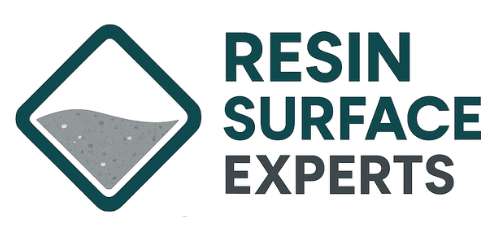Resin Surface experts - Frequently Asked Questions
Have questions about resin-bound driveways, patios, pathways, or surface restoration? Below are our most common enquiries. For personalised advice, contact our experts.
What is the difference between resin-bound and resin-bonded surfacing?
Resin-bound mixes resin and aggregate before laying for a smooth, seamless finish. Resin-bonded applies resin first, then loose aggregate on top, giving a more textured, non-slip surface.
How long do resin surfaces typically last?
Professionally installed resin surfaces last 20–25 years or more, thanks to UV-stable resins and a continuous, joint-free finish that resists cracking.
Are resin surfaces suitable for heavy vehicles?
Yes—when installed over the correct reinforced sub-base, resin driveways can safely support cars, vans, and light commercial traffic.
How do I maintain a resin driveway or patio?
Simply sweep or hose off debris regularly and apply an annual light pressure wash to remove dirt, algae, or moss.
Can resin be laid in damp or cold weather?
Resin must be laid on a dry surface at temperatures between 10 °C and 25 °C. Heavy rain, frost, or extreme cold will delay installation until conditions improve.
Are resin surfaces eco-friendly?
Yes—our permeable resin systems comply with SuDS guidelines, allowing rainwater to drain through the surface, reducing runoff and supporting sustainable water management.
How soon can I use my new resin surface?
Foot traffic is safe after 1–2 hours; vehicle access typically after 24–48 hours, depending on resin formula and weather.
Can existing driveways and patios be restored with resin?
Absolutely—our restoration service grinds off the old surface, repairs the base, and applies a fresh resin overlay for like-new results without full re-lay.
What colour and aggregate options are available?
Choose from natural stone tones (sandstone, slate, granite), contemporary hues (charcoal, aubergine, emerald), two-tone blends, and custom inlay or border patterns.
How much does a resin driveway cost?
Costs vary by size, design complexity, and sub-base requirements. Contact us for a free site survey and bespoke quotation.
Do resin surfaces require planning permission?
Generally, no planning permission is needed for permeable resin surfaces under Permitted Development rules, but check local regulations if you’re in a conservation area.
Will weeds grow through a resin surface?
No—the continuous, joint-free finish prevents weed growth and eliminates the need for chemical weed control.
Can I drive on my resin driveway in winter?
Yes—resin’s flexible, frost-resistant nature prevents cracking, and its permeability prevents ice-forming puddles.
How thick is a typical resin installation?
Resin driveways are usually laid at 15–18 mm thickness; patios and paths can be 10–15 mm, depending on traffic loads.
What sub-base do you use under resin surfaces?
We install a compacted hardcore sub-base (minimum 150 mm thick) with a geotextile membrane to ensure stability and drainage.
Can I walk my dog on a resin surface?
Yes—resin patios and paths are pet-friendly, slip-resistant, and easy to clean of paw prints or spills.
How do I clean oil or tyre marks from a resin driveway?
Oil stains can be removed with a mild detergent and a soft brush. For stubborn marks, we recommend a light pressure-wash on a low setting.
Is a resin surface slip-resistant?
Yes—depending on your aggregate choice, resin surfaces meet or exceed BS EN 14231 slip-resistance standards, making them safe in wet conditions.
Still have questions?
We’re here to help! Whether you need more details about our resin surfaces, installation process, or tailored design options, our friendly experts are just a message or call away. Contact us today for personalized advice and a free, no-obligation quote.
